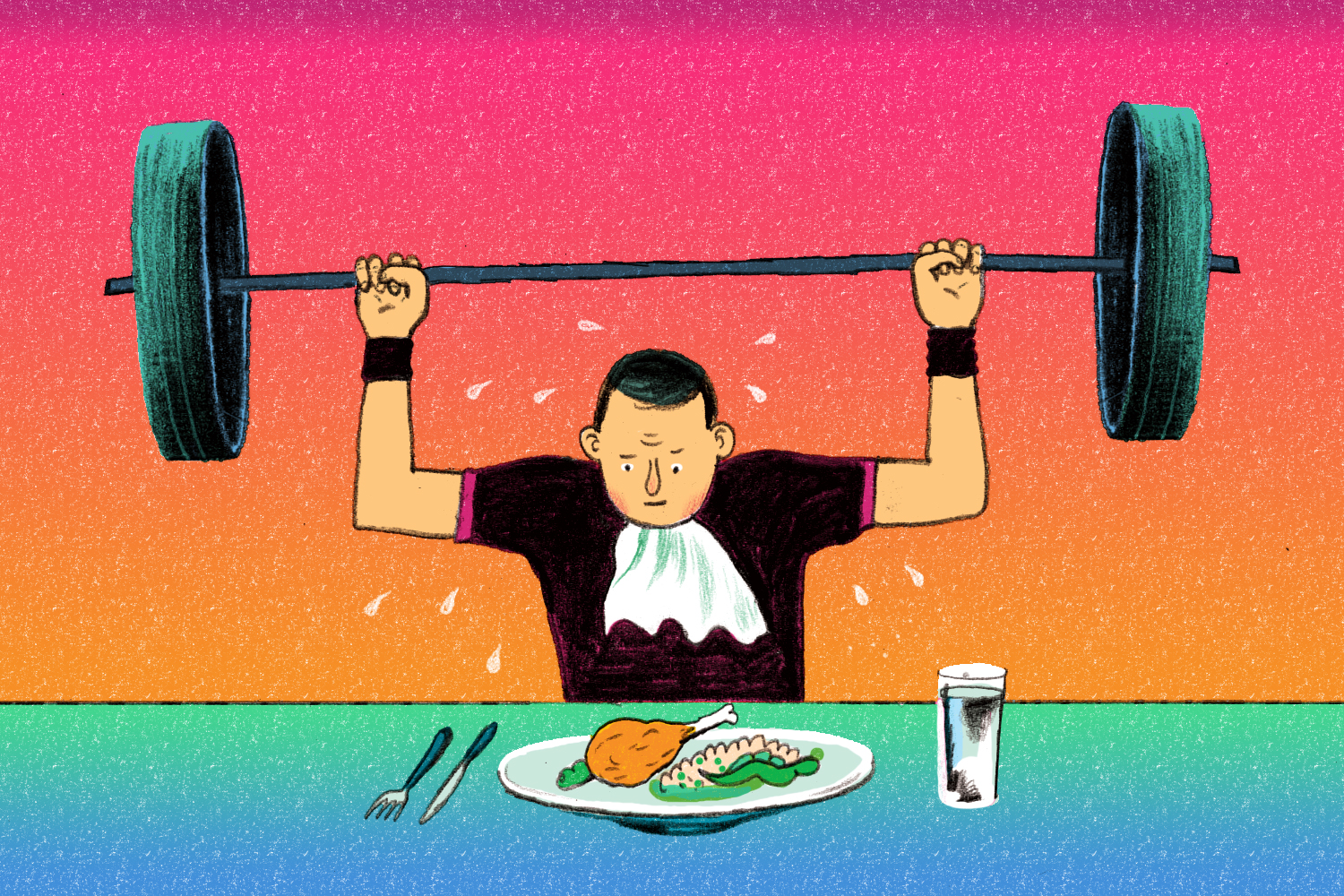
Short answer: Both.
Long answer: How and when to fuel your body is the same for all exercisers to some extent, but your routine may warrant a few nutritional tweaks, says Dr. Nancy Cohen, head of the department of nutrition at the University of Massachusetts.
“In general, you’ll want to eat a meal high in carbs and protein and low in fat roughly three to four hours before you exercise,” Cohen says, whether you’re trying to shed pounds or build muscle. Carbohydrates supply your body with the glycogen it needs for your yoga session, gym visit, or jog. Skimp on carbs, and your muscles will sputter when called on to perform, she says.
If you’re trying to lose weight, it may seem weird and counterproductive to eat a carb-heavy meal before you hit the gym. But complex carbohydrates like beans, lentils, whole grains and starchy vegetables will provide exercise fuel plus nutrients and fiber. Unlike refined carbohydrates—things like white bread, cookies, soft drinks, or many pre-packaged foods—complex carbs won’t expand your personal equator or supercharge your appetite, research shows.
Cohen recommends avoiding fat in your pre-workout meal because it slows down your digestion. But eating protein supports your muscles. “During and after exercise, your muscle cells break down and rebuild,” Cohen explains. The right proteins contain the amino acids your muscles need to complete that cellular rebuilding process.
Complete protein packages include animal sources like chicken or lean beef, since they have all those amino acids, Cohen says. Grains like quinoa and bulgur as well as beans and some vegetables also contain protein, though probably not the “complete” kind. But if you eat a variety of those food sources, you can skip the meat and still get all the amino acids you need, she adds.
As for post-workout food, Cohen suggests eating or drinking more protein an hour or two after lifting weights for bodybuilders and athletes. But despite what you’ve heard, it’s not necessary (or healthy) to pound a massive protein shake the second you stop pumping iron.
You Asked: Your Top 10 Health Questions Answered










According to Dr. Rob Danoff, an Aria Health System physician with a focus on sports medicine and nutrition, your body—and especially your kidneys—can only synthesize so much protein. Research suggests roughly one gram of protein per kilogram of body weight is plenty to maximize muscle growth. By that measure, for a person who weighs 175 pounds, 80 grams of protein all day is enough.
One large chicken breast or cut of red meat can contain 60 grams of protein or more, so slamming a huge protein shake after a workout will only inundate your kidneys with protein it can’t handle and your muscles don’t need, Danoff says. Apart from the risk of kidney damage, there’s evidence that overloading your body with protein can contribute to an imbalance in the acidity of your blood, which in the long run could lead to bone weakening. “It’s a myth that we need all this protein,” Danoff says. “More isn’t always better.”
In your workout-food focus, don’t forget water. If you exercise first thing in the morning, Cohen says dehydration is a big concern because you’ve probably passed much of the night without a sip of H2O. “Your whole cellular metabolism is dependent on fluid,” she says. And everything from your workout performance to your mood and mental acuity will suffer if you’re parched.
More Must-Reads from TIME
- How Donald Trump Won
- The Best Inventions of 2024
- Why Sleep Is the Key to Living Longer
- Robert Zemeckis Just Wants to Move You
- How to Break 8 Toxic Communication Habits
- Nicola Coughlan Bet on Herself—And Won
- Why Vinegar Is So Good for You
- Meet TIME's Newest Class of Next Generation Leaders
Contact us at letters@time.com